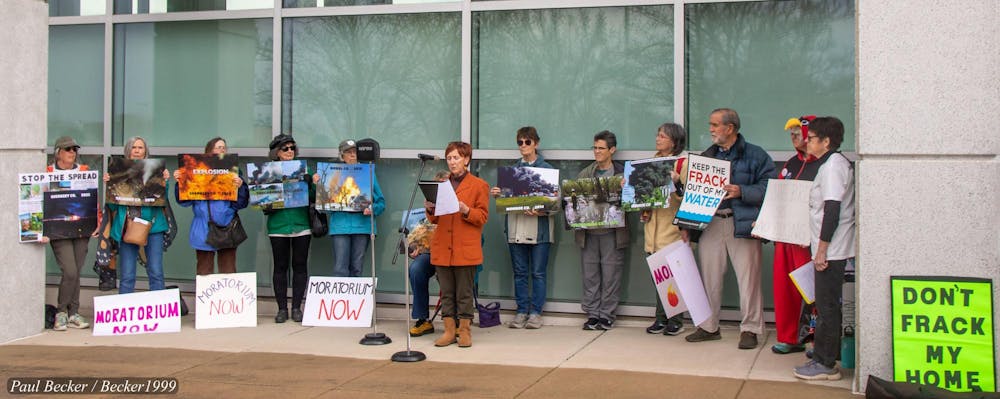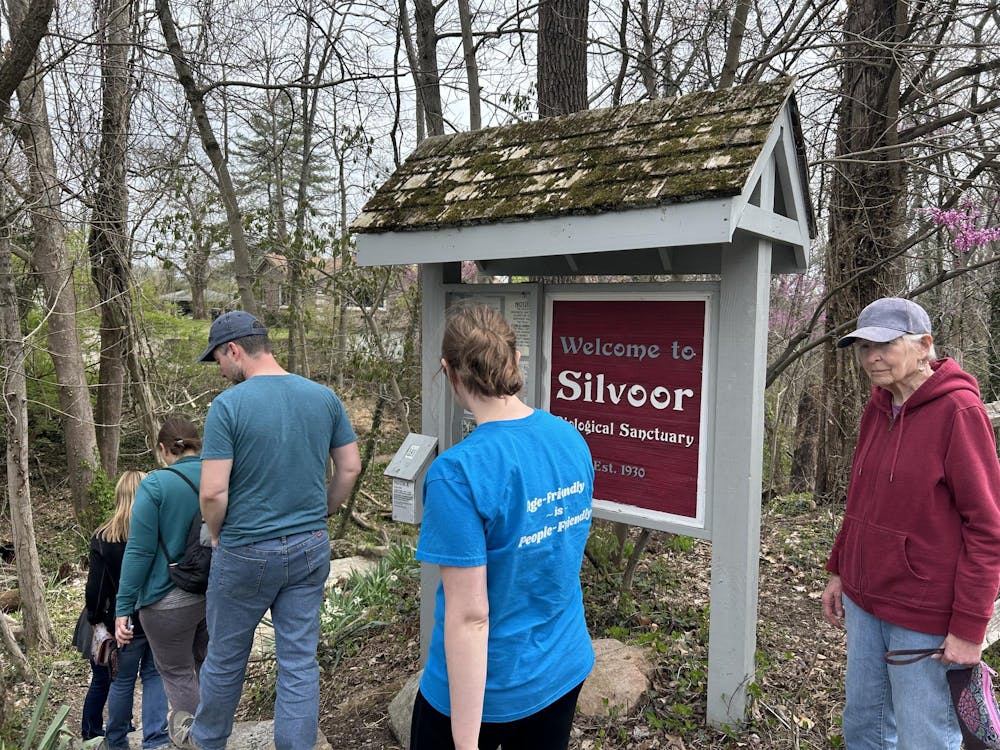Shale is not just a rock learned about in the geology unit of a middle school science class. it also contributes to the majority of oil extraction in Ohio. This extraction is done through fracking, which involves injecting a high-pressure mixture of unregulated sand and chemicals into underground rock to extract oil and gas.
Over 200,000 oil and gas wells have been drilled in Ohio since 1896, with over 60,000 currently subjected to drilling. While the majority of these wells are located in Eastern Ohio, where shale deposits are abundant, fracking activity still impacts Southwestern Ohio. These impacts can span anywhere from the migration of fracking byproducts into groundwater to noise and light pollution.
Less than a month ago, House Bill 308 was signed by Governor Mike Dewine — a bill that included extensions of fracking leases on Ohio state parks and public natural areas. This bill’s passage sparked uproar, especially within the grassroots organization, Save Ohio Parks.
“It’s just a David and Goliath fight,” said Randi Pokladnik, a fracking researcher and member of Save Ohio Parks. “We get a few wins here and there, but for the most part, it’s really hard to get anything accomplished due to how gerrymandered the state is.”
Despite being up against Ohio’s current political administration, Save Ohio Parks rallied its members for a press conference in opposition to the fracking lease extensions during an Ohio Oil and Gas Land Management Commission meeting on March 28.
Focused not only on bringing together Save Ohio Parks members from all across Ohio, this rally also brought attention to the statewide implications of fracking.
“People may mistakenly think fracking Ohio state parks and public lands is a regional issue because the majority of fracking takes place in eastern Ohio,” said Melinda Zemper, a steering committee member of Save Ohio Parks, “but the truth is, this state’s lax gas and oil waste management and storage practices are the entire industry’s Achilles’ heel.”
Because the majority of Ohioans rely on groundwater for their drinking water, the threat of fracking byproducts, like radioactive brine, seeping into their drinking water supplies is not a small one. For example, in Athens County, fracking-produced brine has been found migrating over a mile away from its source since 2019 — inching its way toward groundwater drinking wells. The migratory activity of fracking byproducts makes fracking a statewide concern, including in Southwest Ohio.
“If just one aquifer is poisoned in Ohio from migrating radioactive gas and oil waste brine, it could affect the drinking water for tens of thousands people who rely on well water for drinking,” Zemper said.
While Oxford is not close to a major fracking site, it relies greatly on the Great Miami Buried Valley Aquifer, which has been known to be susceptible to contamination. Some Miami University students are worried about Oxford’s natural areas because of this susceptibility and current pro-fracking legislative moves.
“Natural areas are a way for us to connect back to nature to find peace and tranquility,” said Alaina Fitch, a senior creative writing and professional writing double major. “It’s important to protect our natural areas not only so we have them to use as recreation, but also to help keep the quality of our Earth balanced.”
To address these concerns, some Ohio legislators are taking steps to acknowledge the implications of fracking in Ohio. For example, Ohio State Senator Nickie Antonio has introduced Senate Bill 132, which aims to prohibit fracking under state lands. However, this legislative momentum requires support and awareness from Ohio citizens.
Enjoy what you're reading?
Signup for our newsletter
“We’ve got to hope for more than just hearings,” said Mary Huck, a Save Ohio Parks board member.
Other Save Ohio Parks members seconded this call for hope amid silence from Gov. Mike Dewine in response to their letter calling for a moratorium on fracking public Ohio parks and lands.
“They think that if they ignore us, we will go away, but that’s not going to happen,” Zemper said, “because we are dedicated, committed, knowledgeable and persistent.”




